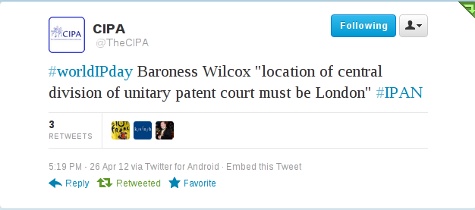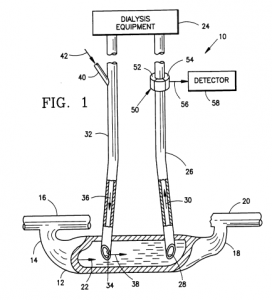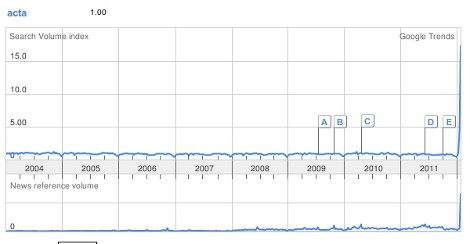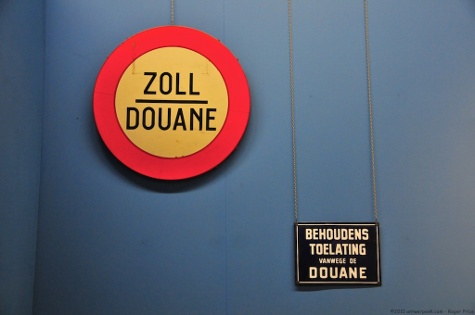Until some fifteen years ago, it was common sense that internal proceedings of lawmakers in Government, Parliaments and Parliamentary Committees can’t be open to each and every interested individual of the general public: It was simply commercially infeasible to make photocopies of all relevant documents and send them out for free to everyone who would like to read them. Beyond the group of genuine members of such bodies there always has been a culture of establishing some sort of extended inner circle based on status and privilege where members thereof would receive prints of photocopies important papers via postal service. It was really a privilege to be part of such circles, and in the field of Intellectual Property legislation usually this status was reserved for dignitaries like Presidents of the Insitute of patent attorneys or the like.
At least in some fields commercial alternatives were available. I remember that in the 1980s I started an experiment on my own: Eager to learn about the inner workings of German politics, I subscribed to a relative small subset out of the full range of Official Printed Matters (Drucksachen) of the lower chamber of the German Parliament (Bundestag) covering legislative drafts and minutes of parliamentary debates in certain fields of politics I was interested in. Those Bundestags-Drucksachen were printed and distributed for a fee by a small publishing company Verlag Dr. Hans Heger located in Bonn. The monthly costs of this undertaking roughly amounted to the equivalent of a subscription to one of the major broadsheed daily newspapers like Frankfurter Allgemeine Zeitung (FAZ) or the like.
Hence, the postman started delivering piles of printed matters, and after a short while the floor of my living room was covered with a layer of unread parliamentary papers. Later I carried all that stuff down to the cellar, and some months onwards I had to pull the emergency brake and abandon the entire project because of all empty space was sucked off by piles of Official papers, most of them unread, of course. In the end, the experiment had utterly failed.
But then, suddenly the the Internet came in and was more and more accessible by private individuals.
Continue reading »
Yesterday, in Berlin the German industry association Bundesverband der Deutschen Industrie e.V. (BDI) has held a conference titled Tag des geistigen Eigentums – Geistiges Eigentum verpflichtet (Intellectual Property Day - Property entails obligations). According to a report published on Heise’s Newsticker the topic of the pending proposal for a Unitary Patent was discussed.
Reportedly Mr Christoph Ernst from German Ministry of Justice (Bundesjustizministerium) has re-affirmed his expectation that a conciliation on this matter can and will be reached until next meeting of the EU Competitiveness Council to be expected end of May or in June later this year.
Mr Lothar Steiling, Director Intellectual Property with Bayer AG and President of the VPP (German Association of Intellectual Property Experts), is reported to have supported the proposed enhanced co-operation to create a Unitary Patent on behalf of those circles of insustry which have decided not to oppose the pending draft contrary to the dismissive language used especially be EPLAW. Another supportive statement came from Mr Andreas Thürer, Director Intellectual Property with Bosch Rexroth.
Ms Kerstin Jorna from EU Commission DG Internal Market is said to have argued more cautiously, considering that the proposal still might fail. She explicitly appealed to the representatives of German Industries to come forward in support of the Unitary Patent.
Furthermore, statements of FFII as well as of representatives of the German Piratenpartei are said to have expressed their concerns especially that the Unitary Patent might turn out to be a tool to facilitate legal acceptance of software patents (patents on computer-implemented inventions CII).
Continue reading »
A couple of years ago, in 2007 the European Patent Office (EPO) was pleased to invite to its annual Online Services conference, which that year took place in the Lake Como area, Italy, on 13 and 14 November. The conference theme was ‘End-to-end electronic processing – how to survive when the EPO no longer accepts paper‘. In fact, within the broader context of the European Patent Network EPN, the EPO strived to modernise itself by announcond advanced electronic digital network superstructures.
The intention was to eliminate paperwork also with regard to communication to and from the applicants, that is, in many cases, their patent attorneys, well before the end of the decennium; see Barbara Cookson’s report here. A message on the EPO website (which, meanwhile, is long gone) said:
Continue reading »
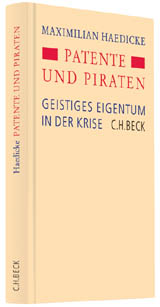 As already indicated in my earlier post, one of the mainstream topics of discussions in Germany concerning IP politicts is the stunning rise of the German Piratenpartei (Pirate Party) at least if recent polls can be trusted. As of April 18, 2012, a poll covering the entire territory of Germany attributes to the Piratenpartei a 13% share of the votes. This is remarkable, indeed. According to the same poll, the Greens could expect a 12% share of the votes and, hence, the Piratenpartei might well be called third-strongest political party in Germany. However, we should not forget that such polls usually have a substantial error margin and, hence, the reality might also be that the Greens have 14% and the Piratenpartei merely 11% of the votes. In any case, at least at the time being, the Piratenpartei appear to be well avove 10% and, of course, well ahead of the 5% quorum required to get seats in general elections.
As already indicated in my earlier post, one of the mainstream topics of discussions in Germany concerning IP politicts is the stunning rise of the German Piratenpartei (Pirate Party) at least if recent polls can be trusted. As of April 18, 2012, a poll covering the entire territory of Germany attributes to the Piratenpartei a 13% share of the votes. This is remarkable, indeed. According to the same poll, the Greens could expect a 12% share of the votes and, hence, the Piratenpartei might well be called third-strongest political party in Germany. However, we should not forget that such polls usually have a substantial error margin and, hence, the reality might also be that the Greens have 14% and the Piratenpartei merely 11% of the votes. In any case, at least at the time being, the Piratenpartei appear to be well avove 10% and, of course, well ahead of the 5% quorum required to get seats in general elections.
In view of this situation we can see an increasing level of nervousness – if not outright panickiness – amongst other political parties which are feverishly considering all available options of how to cope with this new political force. It is entirely open to what end this development will lead. Some parties, in particular the Greens, might be mulling to inch towards Pirate positions in order ro regain ground in circles of younger citizens while others surely will prefer to fight agsinst the very tendencies embodied by the Piratenpartei. In this context and speaking to an audience of IP specialists living abroad I would also like to point out that the current political discussion of the Piratenpartei can by no means be reduced to issues related to IP rights. There are other topics, for example in the fields of welfare politics or related to defending civil rights which are of great importance domestically.
Continue reading »
The Pirate Party (“Piratenpartei” in Germany) is well known amongst IP professionals for their sceptic stance on the current state of copyright and patent law. This article is just to keep our readers overseas without regular access to domestic news from Germany informed on recent developments:
- On September 18, 2011, the Piratenpartei won 9% of the votes and got their first parliamentary group in a local state Parliament in Germany; see my earlier posting here.
- On January 26, 2012, the Parliament (Landtag) of the German State of Saarland took a decision to dissolve after the Saarland Government, a so-called Jamaika-Coalition made up of Christian Democratic Union (CDU), Liberal Democratic Party (FDP), and the Greens (Bündnis90/Die Grünen), failed to carry on due to severe internal disputes. Yesterday, on March 25, 2012, the Piratenpartei won off the cuff a whopping share of 7.4% of the votes, well above the 5% quorum, giving them seats in the new legislative period. Remarkably, the parliamentary group of the Liberal Democrats was extinguished by a crushing defeat materialising in a share of meagre 1.25% of the votes.
- In the German State of Schleswig-Holstein, the Constitutional Court objected to certain provisions of the electoral law, demanding amendments to the law and, subsequently, dissolving of the Parliament (Landtag). A General Election is due to be held on May 06, 2012. Recent polls dated March 16, 2012, show results around 5% to be expected for the Piratenpartei. The quorum for gaining seats will be 5%.
- On March 14, 2012, the Parliament (Landtag) of the German State of North-Rhine-Westphalia dissolved after the Social Democrat (SPD) minority Government was defeated in a vote on the budget. A General Election is scheduled to be held on May 13, 2012. Recent polls also show results around 5% to be expected for the Piratenpartei.The quorum for gaining seats will be 5%.
- On January 20, 2013, General Elections will be held for the Parliament (Landtag) of the German State of Lower Saxony. Current polls attribute to the Piratenpartei a share of about 4%. The quorum for gaining seats will be 5%.
- In September 2013, General Elections for the lower chamber of German Parliament (Bundestag) fall due. Recent polls show results around 6% to 7% to be expected for the Piratenpartei. The quorum for gaining seats will be 5%.
Last not least in view of euphoric feelings after the Pirate Party’s success in Saarland, probably creating a thrust of motivation amongst their party activists, I would be somewhat surprised if they don’t also make it into the Parliaments of Schleswig-Holstein and North Rhine-Westphalia later this spring. And afterwards, if they manage to avoid any severe PR-disaster having a potential to turn their party into a laughing stock, it is also likely to see them in the Parliament of Lower Saxony as well as in the Bundestag in Berlin next year. As there are literally thousands of newcomer volunteers lining up at party conferences and looking for participation it might prove a bit difficult for the party to make sure that no lunatics or polit trolls seize the floor for performing a show of their own.
Anyway, pepole involved in IP politics better should assume that Piratenpartei is likely to stay.
(Photo: (C) 2012 CC-BY Piratenpartei @Fek)
This is a follow-up to Volker ‘Falk’ Metzler’s previous posting titled In Defense of Articles 6 to 9 of the Unitary Patent Regulation and, in particular, to the discussion induced by it.
As can be learnt from the public discussion of the role of the Court of Justice of the European Union (CJEU) and of the European Court of Justice (ECJ) in the context of the planned Proposal for a Regulation of the Council and the European Parliament implementing enhanced cooperation in the area of the creation of unitary patent protection as well as with regard to the still unfinished Draft agreement on a Unified Patent Court there appears to exist – at least in some quarters – a sort of general discontent with the work of those judges presiding in Luxembourg over the entire body of EU law.
For example, our reader Derek Clapton (maybe a pseudonymous author identification?) puts his view on the CJEU in this brief summarising sentence:
To say that the ECJ “is the best functioning institution of the Union” is like saying that Amsterdam is the highest place in the Netherlands – possibly true, but an unimpressive boast nonetheless.
Well, I think it might be interesting to have some deeper insight into the factual basis of this damnation. Mr Clapton gives us a clue when he writes:
If, in answering questions such as how to determine the scope of protection of a patent claim, the ECJ introduces the same degree of uncertainty in patent law as it has in the case of trade mark law, the EU patent system will fail its users, which may lead to manufacturers deciding to locate new factories outside of the court’s jurisdiction. In such case, Spain may be well advised to remain outside of the proposed EU patent arrangements.
And another commenter Peter Lustig (maybe another pseudonymous identification?) argues:
Usually, one would expect renowned senior practitioners of his kind to join him and support his argumentation – there appear to be none so far. Also, the Article 6 to 9-issue is only one in a row of objections, some going to the very core of the project (e. g. the compatibility with the AETR case law of the CJEU) and still remaining unaddressed. With all due respect, but Professor Tilmann’s outstanding reputation should not be allowed to replace founded answers to legitimate questions.
And, even Dr. Jochen Pagenberg himself joins the line of comments by arguing, inter alia, as follows:
If one wants a really unattractive, inefficient, unpredictable and probably extremely expensive patent court system, then we will get it; one must only give the ECJ a chance to receive as many referrals in patent law as possible.
If one wants to see substantive patent law in Europe to be decided by judges without any solid knowledge and experience in this field, then one must involve the ECJ whenever possible.
Well, is this real? It is fair to say that as a humble patent and trade mark attorney I never shall deal with those EU judges in Luxembourg myself. But I have to carefully read important decisions, in particular in the field of trade mark law. And, yes, there are decisions of the Court which I find questionable but that also holds for me when studying decisions from German Courts. A well-known and a bit semi-ironic German proverb says that in court and on the high seas we all are in the hands of the Lord, indicating that awaiting a decision of a Court always bears a momentum of unpredictability. Are the high seas of the CJEU / ECJ excessive in this respect?
Continue reading »
Recently the European Patent Office (EPO) has published Decision T 1695/07 – 3.3.07 of one of the Boards of Appeal dealing with the exception from patentability under Article 53(c) EPC. The catchword reads as follows:
I. A blood manipulation process involving the continuous removal of blood from a patient, its subsequent flowing through a circulating line of an extracorporeal circuit and its re-delivery to the patient is a method of treatment of the human body by surgery excepted from patentability under Article 53(c) EPC. It does not belong to the kind of methods which should not be covered by the exception clause according to the “narrower understanding” suggested by the Enlarged Board of Appeal in decision G 1/07, because the process is not performed in a “non-medical, commercial environment” and cannot be considered as a “minor intervention” being performed on “uncritical parts of the body” (Reasons, 8 to 10).
II. Such an in vivo process requires “professional medical expertise” and belongs to the kind of interventions representing the “core of the medical profession’s activities”, even when performed by paramedical support staff (Reasons, 11).
III. Even when the process is carried out with the required medical professional care and expertise, it involves ”substantial health risks” for the patient. A health risk is considered to qualify as “substantial” whenever it goes beyond the side effects associated with treatments such as tattooing, piercing, hair removal by optical radiation, micro abrasion of the skin as mentioned in G 1/07. A factual analysis of absolute or relative risks and their likelihood of occurrence based on objective evidence is hardly feasible and should therefore not be required.
In the Decision the Board argues the claimed process does not fall under the “narrower understanding”, i.e. does not belong to the kind of methods which should not be covered by the exception clause according to the criteria developed in G 1/07 because of it comprises the steps of
- “continuously removing blood from a downstream location in the shunt (12) …” and
- “delivering the removed blood flowing in said circulating line by way of an outlet connected to an outlet side of said circulating line to an upstream location of said shunt, …”.
Furthermore and again according to the Board, It has been established that these steps are invasive and represent a substantial physical intervention on the body which requires professional medical expertise to be carried out and which entails a substantial health risk even when carried out with the required professional care and expertise. ccording to the established jurisprudence of the Boards of Appeal, a multi-step method falls under the exception clause of Article 53(c) EPC, if it includes at least one feature that constitutes a method step for the treatment of the human body by surgery. The possible technical contribution of the invention as mentioned by the proprietor appellants is not a criterion to be taken into consideration in this context.
As reported earlier, the public debate on the Anti-Counterfeiting Trade Agreement between the European Union and its Member States, Australia, Canada, Japan, the Republic of Korea, the United Mexican States, the Kingdom of Morocco, New Zealand, the Republic of Singapore, the Swiss Confederation and the United States of America (ACTA) is currently gaining momentum. One of the many problems with ACTA is that it appears not to be clear as to whether or not the Treaty will actually change the law of at least some of its Member states.
In this context it appears to be worthwhile to bring back into memory that – unlike the SOPA and PIPA Bills recently stalled in the U.S. – ACTA is a Treaty of public international law, not civil law or public national law. The Articles thereof clearly address not individuals or corporations but its Member States (‘Parties’) and imposes on them an obligation to uphold certain minimum standards with regard to enforcement of intellectual property law. Article 2 Para. 1 of ACTA reads [emphasis added]:
Each Party shall give effect to the provisions of this Agreement. A Party may implement in its law more extensive enforcement of intellectual property rights than is required by this Agreement, provided that such enforcement does not contravene the provisions of this Agreement. Each Party shall be free to determine the appropriate method of implementing the provisions of this Agreement within its own legal system and practice.
In this context it does not come as a surprise that in some of the ACTA signatory states some (if not many) of the provisions provided by ACTA are already in force. For example, in Germany the first Act on Product Piracy (“Produktpirateriegesetz”) dates back to March 07, 1990. It introduced, inter alia, a right to information addressing the infringer to disclose otherwise confidential information concerning the act of infringement as well as provisions to seize and destroy counterfeit goods. Today, in the EU the laws governing the enforcement of intellectual property right in general and especially the fight against piracy are widely harmonised by secondary EU law.
Continue reading »
As should be well known to everyone working on patents, copyright, trade marks and the like, the Anti-Counterfeiting Trade Agreement (ACTA) is a plurilateral agreement for the purpose of establishing international standards for intellectual property rights enforcement. In an earlier post on this blog I had reported in October last year on preparations for signing and ratification of ACTA in the EU, predicting that an epic battle on the ratification of ACTA is looming. Meanwhile, the Agreement has been signed on behalf of 31 Member States and on behalf of the EU as well.
It is absolutely safe to state that the public debate on ACTA has not calmed down. To the contrary, tensions are soaring as demonstrated by the Google Trends graph shown above: Just in these weeks and days the public interest in ACTA related matters as perceived by Google search engine has increased dramatically; look at the leading slope near the right-hand border of the plot. Fueled by real or imaginative parallels to the SOPA and PIPA Bills recently stalled in the U.S., broader circles of those parts of the general public engaged in Internet politics had a closer look into the ACTA matter, and many were not amused. Twitter timelines are buzzing with statements of discontent concerning ACTA; in Germany, protest demonstrations are scheduled to happen on February 11, 2012. In Poland, protest demonstrations with tens of thousands of participants have already been reported during past days (see also another video here).On January 26, Mr Kader Arif, the rapporteu for ACTA in the respective Committee of the European Parliament, stepped down, dismissing the entire political process of the creation of ACTA as follows:
“I condemn the whole process which led to the signature of this agreement: no consultation of the civil society, lack of transparency since the beginning of negotiations, repeated delays of the signature of the text without any explanation given, reject of Parliament’s recommendations as given in several resolutions of our assembly.”
As ACTA is considered to be a Mixed Agreement interfering with EU competences as well as with national ones it needs ratification not only by the EU Parliament on behalf of the European Union but also of each one of the 27 national Parliaments on behalf of each one of the EU Member States. Hence, starting later this year, we shall be entertained by watching a sort of a round dance of a political ratification theatre on a total of 28 stages including the European Parliament. And in many, if not in all EU Member States, a strong opposition will take the chance to push for a general debate on IP politics.
In some of the EU Member States the ACTA dispute may assist the respective national branch of the Pirate Party to enter the Parliament. Current polls on federal level say that the German branch of the Pirate Party may expect around 5% share of the votes for the lower chamber of the German Parliament (“Bundestag”). A broad grassroots movement fueld by protest against ACTA could well help them pass the 5% quorum hurdle. In view of the perceivable decay of the Liberal Democratic Party (“Freie Demokratische Partei”, FDP) which hangs around 3%, the German Piratenpartei might not only see chances to gain seats in the 2013 general elections but also to become junior coalition partner in a future German Government.
On May 30, 2011, the EU Council had published Document 10880/11 conveying a Proposal for a regulation of the European Parliament and of the Council concerning customs enforcement of intellectual property rights issued by the EU Commission under reference COM(2011) 285 final on May 26, 2011. The gist of this proposal was summarised within the Document as follows:
Continue reading »
The k/s/n/h::law blog
Some of the patent attorneys of the KSNH law firm have joined their efforts to research what is going on in the various branches of IP law and practice in order to keep themselves, their clients as well as interested circles of the public up to date. This blog is intended to present results of such efforts to a wider public.
Blog Archives
- November 2013 (2)
- October 2013 (1)
- September 2013 (1)
- August 2013 (2)
- July 2013 (3)
- June 2013 (5)
- March 2013 (5)
- February 2013 (4)
- January 2013 (5)
- December 2012 (5)
- November 2012 (5)
- July 2012 (5)
- June 2012 (8)
- May 2012 (5)
- April 2012 (3)
- March 2012 (4)
- February 2012 (5)
- January 2012 (6)
- December 2011 (12)
- November 2011 (9)
- October 2011 (9)
- September 2011 (4)
- August 2011 (7)
- July 2011 (4)
- June 2011 (1)
Blog Categories
- business methods (6)
- EPC (7)
- EPO (12)
- EU law (92)
- ACTA (8)
- CJEU (4)
- Comitology (1)
- competition law (2)
- Enforcement (6)
- EU Unified Patent Court (62)
- FTA India (1)
- TFEU (2)
- Trade Marks (5)
- European Patent Law (37)
- German Patent ACt (PatG) (1)
- German patent law (5)
- Germany (6)
- Pirate Party (3)
- International Patent Law (4)
- PCT (2)
- IP politics (10)
- licenses (2)
- Litigation (5)
- Patentability (7)
- Patents (12)
- Piratenpartei (2)
- Software inventions (10)
- Uncategorized (9)
- Unitary Patent (24)
- US Patent Law (4)
Comments
- kelle on Germany: Copyright Protection More Easily Available For Works Of “Applied Arts”
- Time Limits & Deadlines in Draft UPCA RoP: Counting The Days - KSNH Law - Intangible.Me on Wiki Edition of Agreement on Unified Patent Court Agreement (UPCA)
- Time Limits & Deadlines in Draft UPCA RoP: Counting The Days | ksnh::law on Wiki Edition of Agreement on Unified Patent Court Agreement (UPCA)
- Wiki Edition of Agreement on Unified Patent Cou... on Wiki Edition of Agreement on Unified Patent Court Agreement (UPCA)
- European Commission Takes Next Step Towards Legalising Software Patents in Europe | Techrights on EU Commission publishes Proposal of amendend Brussels I Regulation for ensuring Enforcement of UPC Judgements
Blogroll
- 12:01 Tuesday
- America-Israel Patent Law
- Anticipate This!
- AwakenIP
- BlawgIT
- BLOG@IPJUR.COM
- BP/G Radio Intellectual Property Podcast
- Broken Symmetry
- Class 46
- Director's Forum: David Kappos' Public Blog
- Gray on Claims
- I/P UPDATES
- IAM Magazine Blog
- Intellectual Property Intelligence Blog
- IP Asset Maximizer Blog
- IP CloseUp
- IP Dragon
- IP Watch
- IP Watchdog
- IPBIZ
- ipeg
- IPKat
- ITC 337 Law Blog
- Just a Patent Examiner
- K's Law
- MISSION INTANGIBLE
- Patent Baristas
- Patent Circle
- Patent Docs
- Patently Rubbish
- PatentlyO
- Patents Post-Grant
- Reexamination Alert
- SPICY IP
- Tangible IP
- The 271 Patent Blog
- The Intangible Economy
- THE INVENT BLOG®
- Think IP Strategy
- Tufty the Cat
- Visae Patentes
The KSNH blogging landscape


This blog and the German-language sister blog k/s/n/h::jur link to the two popular and privately run blogs IPJur und VisaePatentes and continue their work and mission with a widened scope and under the aegis of our IP law firm.
ksnhlaw on Twitter
- No public Twitter messages.
 KSNH::JUR Feed (german)
KSNH::JUR Feed (german)- Ist Verschlüsselung passé? September 6, 2013Auf verschiedenen Feldern beruflicher Praxis ist dafür zu sorgen, dass Kommunikation vertraulich bleibt. Die trifft beispielsweise für Ärzte zu, aber auch für Anwälte, darunter auch Patentanwälte. Einer der zahlreichen Aspekte, die in diesem Zusammenhang eine Rolle spielen, ist die Technik, um die Vertraulichkeit beruflicher Kommunikation sicherzustellen. Wa […]
- EU-Einheitspatent: Demonstrativer Optimismus und Zahlenmystik allerorten – Naivität oder politische Beeinflussung? June 26, 2013Nach mehreren vergeblichen Anläufen zur Schaffung eines EU-weiten Patentsystems wurde 1973 als Kompromiss das Europäische Patentübereinkommen unterzeichnet, welches unabhängig von der seinerzeit noch EWG genannten Europäischen Union System zur zentralisierten Patenterteilung mit nachgeordnetem Einspruchsverfahren durch das Europäische Patentamt schuf. Wie wi […]
- Moderne Zeiten oder: DPMA und Patentgericht streiten über die elektronische Akte April 25, 2013Bekanntlich hat das Deutsche Patent- und Markenamt (DPMA) im Jahre 2013 mit der rein technischen Fertigstellung der Einrichtungen zur elektronischen Akteneinsicht einen wichtigen Meilenstein seines Überganges von der Papierakte zur “elektronischen Akte” erreicht. Im DPMA werden aber bereits seit dem 01. Juni 2011 Patente, Gebrauchsmuster, Topografien und erg […]
- Gutachten zu Forschung, Innovation und technologischer Leistungsfähigkeit Deutschlands 2013 March 11, 2013Unter dem Datum vom 28. Februar 2013 ist die Bundestags-Drucksache 17/12611 veröffentlicht worden Sie trägt den Titel Unterrichtung durch die Bundesregierung - Gutachten zu Forschung, Innovation und technologischer Leistungsfähigkeit Deutschlands 2013. Die Bundesregierung legt dem Deutschen Bundestag seit dem Jahr 2008 […]
- 3D-Printing: Zum Filesharing von 3D-Modelldaten February 25, 2013In meiner kleinen zuvor angekündigten Reihe über rechtliche Aspekte des 3D Printing komme ich heute auf die Frage zu sprechen, ob die Hersteller von Gerätschaften es hinnehmen müssen, wenn Ersatztreile davon – vom Brillengestell über Smartphone-Gehäuseteile bis hin zu Rastenmähermotor-Abdeckungen – gescannt und die daraus […]
- Ist Verschlüsselung passé? September 6, 2013


